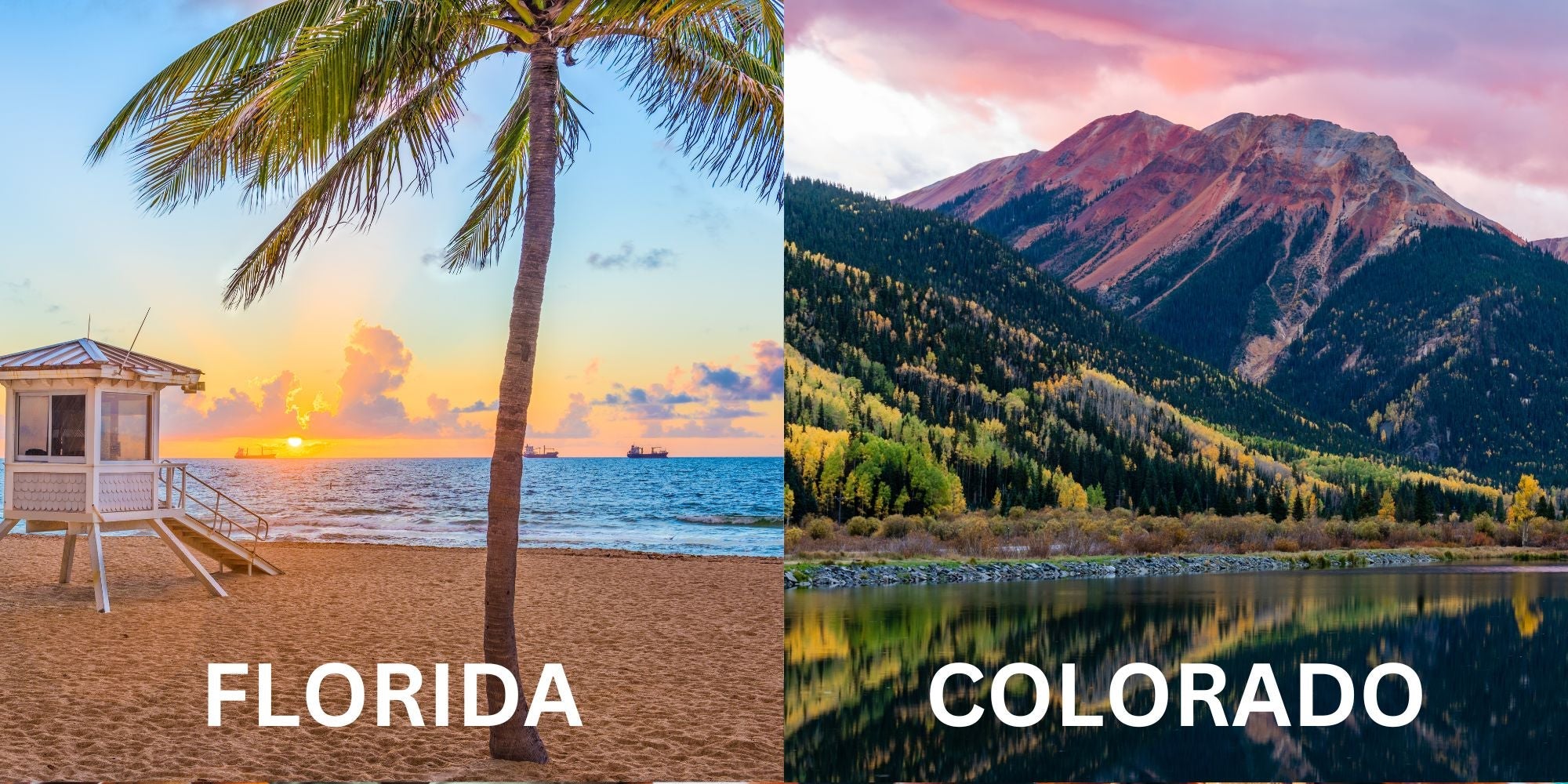
Whether moving or vacationing from the sunny shores of Florida to the breathtaking heights of Colorado, altitude sickness is a challenge. In this guide, as a local based Colorado company we'll delve into Florida to Colorado altitude sickness and our top tips to avoid it.
Going from sea level in Florida to Colorado's high altitudes can be particularly challenging. Denver, known as the "Mile-High City," sits at an elevation of 5,280 feet (1,609 m). While other parts of Colorado can reach even much higher elevations.
Florida to Colorado altitude sickness is commonly experienced when visiting. Altitude sickness is caused by the lower oxygen levels at higher elevations.
The lower oxygen levels leads to oxidative stress, dehydration, and other physiological stresses that accumulate on the body. Headache, nausea, and other symptoms are common to happen within 6-24 upon arrival.
Common symptoms of Florida to Colorado altitude sickness:
Be on the lookout for these signs of Florida to Colorado altitude sickness, and keep reading to find out our best tips to avoid it by taking precautions.
Colorado's mean elevation is 6,800 feet above sea level. This is a drastic jump from the beaches of Florida that leads to a high risk of altitude sickness.
Colorado is considered the highest state in all of America. With the Rocky Mountains, there's a big range in altitudes yet most exceed the threshold of having a risk of altitude sickness.
Here's a short sample of high-altitude destinations in Colorado:
As you can see, the altitudes in Colorado get very high and can therefore be a challenge for most visitors.
Yes, you can get altitude sickness traveling to Colorado.
If traveling to Colorado from a place like Florida at sea level, your risk of altitude sickness will go up substantially.
Oxygen levels in Colorado are estimated between 16% to 38% lower than found at sea level in Florida. With such a rapid change in altitude, it creates the exact recipe for altitude sickness.
Travel Medicine Consultants states that altitude sickness can begin in altitudes as low of 4,000 feet.⁴ And at 10,000 feet, it's estimated that up to 50% will experience altitude sickness,⁵ proving that Colorado presents high risks of altitude sickness.
Getting Florida to Colorado altitude sickness is quite common due to traveling from sea level.
As a local Colorado company, we've had over a decade of experience with the high altitudes and have numerous research to help you.
Here's 6 Tips To Avoid Colorado Altitude Sickness:
By following these tips, you can increase your chances of having a more enjoyable experience moving to or visiting Colorado. These tips to avoid Florida to Colorado altitude sickness include gradually ascending and acclimating, prioritizing hydration, getting adequate sleep, limiting strenuous activity, avoiding alcohol, and taking glutathione.

Founded out of the heart of Colorado, Zaca chewables provide your body with essential antioxidants, amino acids, and nutrients. With just a few tiny chewables, you can bounce back faster through hydrating and reviving. Specifically formulated with glutathione, you can ensure to replenish your body in the mountains. No more struggling with pills or bitter tasting supplements, Zaca's berry flavored chewables are a delight for your taste buds and easy to use. Simply take 2-4 chewables per day or as preferred. Try Zaca's chewable supplement today and feel your best while traveling.
SOURCES:
1. Colorado Altitude and Colorado Altitude Sickness
https://zacalife.com/blogs/blog/colorado-altitude-sickness
2. Oxygen Levels at Altitude
https://wildsafe.org/resources/ask-the-experts/altitude-safety-101/oxygen-levels/
3. Climate of Colorado And Average Altitude
https://climate.colostate.edu/climate_long.html
4. High Altitude Illness
https://www.travelsurenyc.com/high-altitude-illness/
5. Patient education: High-altitude illness (including mountain sickness)
https://www.uptodate.com/contents/high-altitude-illness-including-mountain-sickness-beyond-the-basics/
6. Why Do You Need to Drink a Lot of Water at a High Altitude?
https://www.livestrong.com/article/360485-how-to-train-for-high-altitude-hiking
7. Sleep: The Secret Ingredient of Injury Recovery
https://www.orthocarolina.com/media/sleep-the-secret-ingredient-of-injury-recovery
8. Denver High Altitude Tips
https://www.denver.org/about-denver/resources/high-altitude-tips/
9. Effects of Alcohol
https://www.ahajournals.org/doi/full/10.1161/01.HYP.29.6.1278#
10. High altitude and oxidative stress
https://pubmed.ncbi.nlm.nih.gov/17482529/
11. Effect of high altitude (7,620 m) exposure on glutathione
https://pubmed.ncbi.nlm.nih.gov/11320641/
12. Oxidative Stress and Diseases Associated with High-Altitude Exposure
https://www.ncbi.nlm.nih.gov/pmc/articles/PMC8868315/
Copy the coupon code & use it at checkout